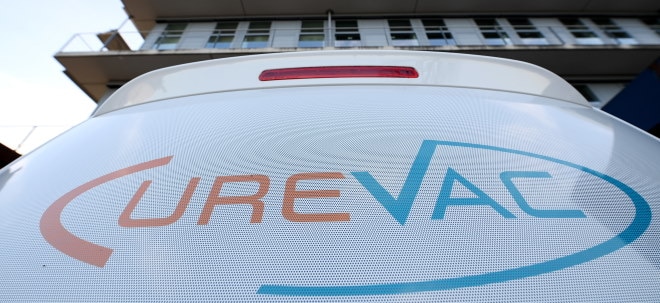Congratulations to the Winners of the 2024 Journal of Applied Physics Early Career Investigator Selection's Best Paper Award
MELVILLE, N.Y., June 11, 2025 /PRNewswire/ -- The Journal of Applied Physics (JAP) has the great honor of announcing Ymir Kalmann Frodason, Christopher D. Woodgate, and Bin Zhang as the winners of the 2024 Journal of Applied Physics Early Career Investigator Selection's Best Paper award.
The JAP Early Career Investigator Selection is an annual featured collection covering all areas of applied physics research. This year, it will consist of 39 papers authored by early career (having received their PhDs fewer than 10 years ago) scientists. This distinguished collection was whittled down from a pool of 195 eligible papers by a Selection Committee consisting of journal editors and Editorial Advisory Board members.
The JAP Early Career Investigator Selection's Best Paper award honors the best papers from that collection. In addition to having their papers highlighted in this year's virtual collection, they will also be invited to join the JAP Editorial Advisory Board, and to serve on the Selection Committee for next year's Early Career Investigator Selection and Best Paper award.
"We're very proud of these early career scientists who highlight and showcase the most exciting research advances in applied physics, which range from uncovering new defect behavior in semiconductors, to thermodynamic vs kinetic processes in high-entropy alloys, to utilizing bioprinting in creating realistic in vitro cancer models," said Journal of Applied Physics Editor-in-Chief Julia R. Greer. "This broad range of exciting topics in applied physics is a hallmark of the exceptional research published in Journal of Applied Physics."
The winners of this year's JAP Early Career Investigator Selection's Best Paper award are:
Ymir Kalmann Frodason
Dr. Frodason's two winning papers, "Theoretical modeling of defect diffusion in wide bandgap semiconductors" and "Perspective on electrically active defects in β-Ga2O3 from deep-level transient spectroscopy and first-principles calculations" were published in the May 2, 2024 and May 16, 2024 issues of JAP, respectively.
Currently a senior advisor in the Department of Energy and Energy Transition at the Research Council of Norway, Dr. Frodason completed the research for both papers while in the semiconductor physics group at the University of Oslo. His work involves trying to understand and predict the behaviors of defects and impurities in oxide semiconductors, materials considered a key focus for the future development of energy technologies.
According to Dr. Frodason, his main investigative tool for that work has been first-principles calculations based on density functional theory — an approach explored in both of his winning papers, wherein he found that a combination of modern first-principles calculations and experiments can, in fact, be a powerful and efficient approach to the understanding and identification of defects in oxide semiconductor materials.
"I am happy and honored to receive this award," said Dr. Frodason. "The two winning papers were perspectives on two of the main fields I have worked in and included several case studies from our group which serve as examples of an approach that was increasingly used during my time there. As such, the award feels like a recognition of our work and achievements over the years."
Christopher D. Woodgate
Dr. Woodgate's winning paper, "Competition between phase ordering and phase segregation in the TixNbMoTaW and TixVNbMoTaW refractory high-entropy alloys," was published in the April 5, 2024 issue of JAP.
A theoretical physicist and computational materials scientist who received his PhD from the University of Warwick, Dr. Woodgate moved to the School of Physics at the University of Bristol in 2024. There, he took up a UK Engineering and Physical Sciences Research Council Doctoral Prize Fellowship. According to Dr. Woodgate, his current focus is on modelling alloys and magnetic materials through first-principles electronic structure calculations, which he utilizes to predict material properties and better understand various phenomena in the materials' underlying physics.
In the winning paper, Dr. Woodgate and his team investigated the use of titanium in refractory high-entropy alloys (alloys containing four or more refractory elements known for their exceptional strength and high melting points). The alloys have myriad potential uses, including in the fusion and aerospace industries — but for now, those uses are limited by the alloys' brittleness at room temperature. It's common for this brittleness to be remedied in experiments through the addition of titanium, but the inclusion of titanium has been found to introduce imperfections in alloy microstructures.
According to Dr. Woodgate, his team studied this phenomenon through computational modeling and determined that titanium's narrow 3d bands and reduced valence introduced strong atomic ordering tendencies within the alloys — aligning with other experimental observations.
"It's really wonderful to have my research recognized in this way, particularly by the Journal of Applied Physics, with its long, proud history of publishing seminal papers on applications of physics to real-world systems," said Dr. Woodgate. "To me, this journal represents an important forum where the materials simulation community can connect with those working on materials experimentally. I am honored to have had my paper selected for this award."
Bin Zhang
Dr. Zhang's winning paper, "Recent advances in 3D printing for in vitro cancer models," was published in the April 8, 2024 issue of JAP.
A lecturer in additive manufacturing for Brunel University's Department of Mechanical and Aerospace Engineering, Dr. Zhang earned her PhD from University College London with a focus on 3D printing drug-loaded biocomposite bone tissue scaffolds. She has also been a visiting scholar at UNC-Chapel Hill and NC State University and performed postdoctoral research at the University of East Anglia and the University of Hertfordshire. Her focus is the development of functional engineered tissues for use in tissue regeneration, drug testing, and disease modeling, as well as further work in organ-on-a-chip engineering.
In the winning paper, Dr. Zhang and her team explored the use of 3D printing in the creation of realistic in vitro cancer models. According to Dr. Zhang, 3D printing allows for the precise placement of cells and materials — allowing models to closely mimic the human body, offering a more ethical and accurate alternative to animal testing for the purposes of drug screening and disease research. The paper found these models are emerging as powerful tools for cancer study and drug testing, with the potential to replace animal models and improve the reliability of biomedical research.
"Receiving this award means a lot to me," said Dr. Zhang. "It's a great recognition of my research, and it shows my work is making a valuable contribution to the field. It gives me more confidence to keep exploring new ideas in 3D printing and biomedical engineering."
"This award also encourages me to keep learning, growing, and supporting other young researchers, especially those from underrepresented backgrounds in science and engineering," she added.
Next on the horizon, Dr. Zhang says she's utilizing 3D printing to create realistic lab models of human tissue for the study of bone diseases and drug delivery. She intends to eventually improve those models — and advance our understanding of how diseases work and drugs behave — through the addition of living cells, sensors, and tiny fluid channels.
ABOUT JOURNAL OF APPLIED PHYSICS
Journal of Applied Physics (JAP) is an influential international journal publishing significant new experimental and theoretical results of applied physics research. The journal also publishes perspectives, tutorials, methods, and special collections focusing on research of particular current or emerging interest.
ABOUT AIP PUBLISHING
AIP Publishing's mission is to advance, promote, and serve the physical sciences for the benefit of humanity by breaking barriers to open, equitable research communication and empowering researchers to accelerate global progress. AIP Publishing is a wholly owned not-for-profit subsidiary of the American Institute of Physics (AIP) and supports the charitable, scientific, and educational purposes of AIP through scholarly publishing activities on its behalf and on behalf of our publishing partners.
![]() View original content to download multimedia:https://www.prnewswire.com/news-releases/congratulations-to-the-winners-of-the-2024-journal-of-applied-physics-early-career-investigator-selections-best-paper-award-302479119.html
View original content to download multimedia:https://www.prnewswire.com/news-releases/congratulations-to-the-winners-of-the-2024-journal-of-applied-physics-early-career-investigator-selections-best-paper-award-302479119.html
SOURCE AIP Publishing


